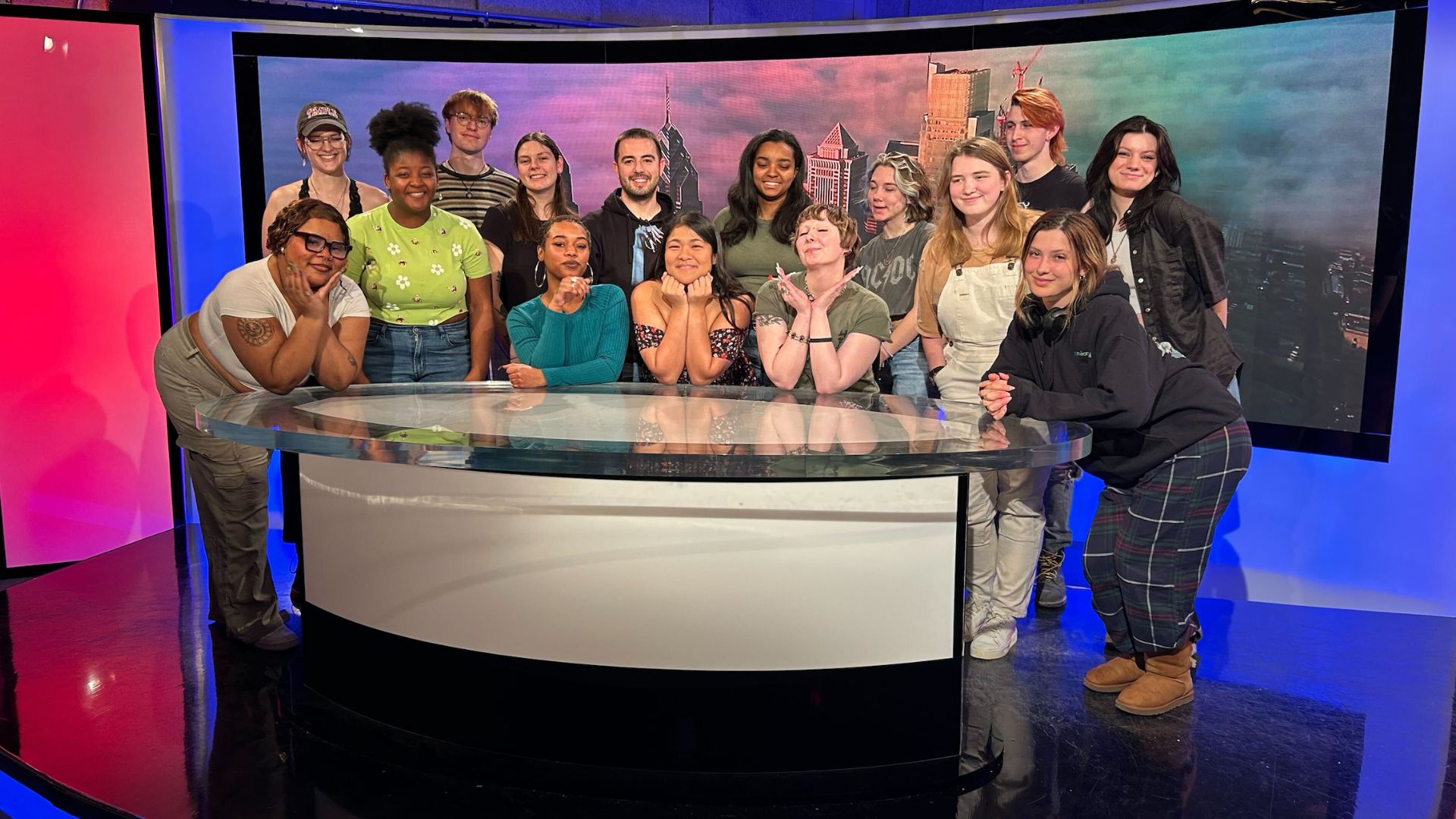For the fourth year in a row, Temple University is welcoming its most diverse student body with the class of 2027. Celebrating different identities and cultures has become more important than ever, especially with the growing awareness of intersectionality. Coined by civil rights advocate Kimberlé Crenshaw, intersectionality is an understanding of how different aspects of individual identities interact with each other to create unique experiences. No group at Temple understands this better than members of TUTV - Temple University Television show, Queer Temple.
Queer Temple, TUTV’s first LGBTQIA+ series, won a nationally recognized award in May 2024. Their episode “Young, Black, & Queer'' won a bronze prize in the 45th annual Telly Awards for the category DEI: Diversity, Equity & Inclusion - Television.
“So often, being in student media feels like we’re creating things just to throw them out into the void,” said Executive Producer and journalism major Allison Beck. “Seeing that people not only watched, but enjoyed the episode, it was a really beautiful experience.”
Despite this sentiment, Beck believes that student media deserves to be more valued. Not only are students able to try out and hone new skills, but they also think that college stories deserve to be told.
“The stories we tell are real stories,” they explained. “Schools like Temple, Drexel University and the University of Pennsylvania would not be the same without student media.”
Queer Temple operates as a venue for queer students and allies to not only dip their toe into student media, but to share their own experiences and learn from others. This is why the host of the episode and senior journalism major Laila Page joined the organization.
“Queer Temple puts students like me on the map,” she said.
The episode “Young, Black & Queer” was created after the producers of Queer Temple wanted to implement intersectional discussions into their show. Queer spaces on campus are often predominately white, making it intimidating for a Black LGBTQIA+ student to find a community.
“For most of Queer Temple’s history, it has been run by white students, which needed to change,” explained Beck.
Most of the episode centered on the importance of celebrating Black and queer joy, and Beck has been trying to focus prominently on this aspect. They believe that there is joy in experimenting and discovering your own identity. In addition, coverage of the queer community can often be distressing, so seeing it being celebrated is significant to the community.
“As a non-binary individual, there are people who do not want me to exist,” Beck said. “So, I experience queer joy in opposition to that.”
Page, a Black and queer student, believes that she does not experience queer joy without Black joy. What was most important to her was learning to have that feeling within herself and celebrating these aspects of her. She experiences being queer differently than other students, and she is happy with that.
“It’s important to celebrate yourself,” said Page. “You want to put out a presence that other people can feel from a mile away.”
Being in the episode herself, Page believes that the experience opened herself up to be more willing to have conversations of this nature, and she’s looking forward to continuing these discussions. In addition, she had no doubt “Young, Black & Queer” would get awarded.
“Our team works so hard in everything we put out,” Page explained. “I honestly was not surprised by the award.”
Beck was very excited about the award and is hopeful that this will encourage Queer Temple to continue to put out episodes like this one.
“This episode really encouraged us to think outside of the box, and to continue to push the boundaries of queer conversations.”

